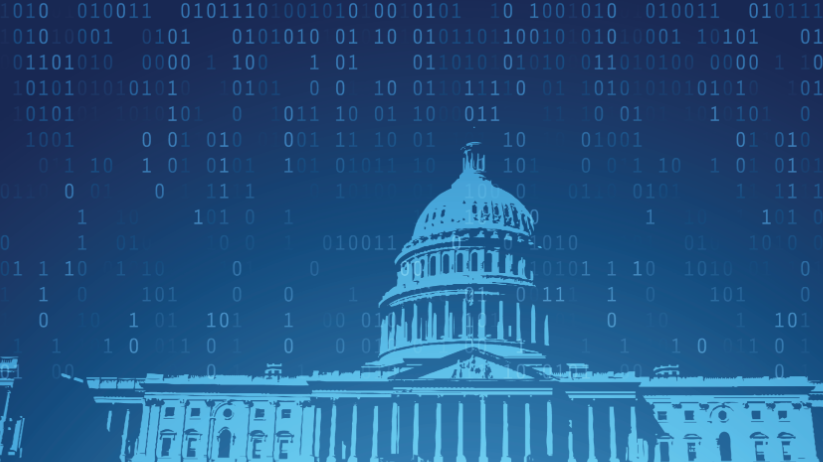Leading faculty and researchers across Georgetown University’s McCourt School of Public Policy are using powerful computer algorithms and machine learning to improve public policy decision-making. Their work is driving change across diverse sectors, from internet safety and environmental justice to health care and mass migration.
Every day, humans and machines across the globe create 2.5 quintillion bytes of new data, according to IBM — enough to fill 20 billion file cabinets.
Thanks to powerful new computer algorithms and machine learning, the data deluge is being analyzed and mined for information that can be used to impact sectors from internet safety and environmental justice to health care and the future of the internet.
With all of that data mining comes a need for public policy and decision-making to keep pace with the rapid advancement of technology. The McCourt School, with its Massive Data Institute (MDI) and newly formed Tech & Public Policy (TPP) program, is helping to shape and regulate the data revolution.
“It’s no secret we are facing a complex and dynamic set of challenges, both nationally and globally,” said Dean Maria Cancian. “Some challenges, like the rapid pace of technological change, make developing a policy framework that limits the harms while maximizing the benefits even more pressing. That’s why the work of the Massive Data Institute and Tech & Public Policy is so vital.”
TPP Director Michelle De Mooy added that while TPP is a natural extension of McCourt, it mirrors the tech sector itself. “McCourt is doing incredible research around technology and policy, and so I wanted to create a program that directly connects that work to policymakers, but also provides a platform for testing and piloting new tech policy ideas,” said De Mooy. “We’re in a good position to be more innovative and active in this space, to push boundaries a bit, and we’re using some of the approaches that have made the tech sector so successful, such as agility, flexibility, creativity and tackling smaller issues and focusing on the end user.”
To that end, TPP has launched several programs in the last year. The inaugural Ideathon Sprint 2023 brought data science, policy, user experience and marketing graduate students from Georgetown and Sciences Po together to identify tech policy problems and solutions. TPP is piloting a project to partner with a private company to address researcher access to social media data and another project to build focused AI policy solutions.
Funding tomorrow’s data scholars
TPP launched the Tech & Public Policy Scholars Program, which in the 2023-24 academic year awarded partial-tuition scholarships of up to $35,000. Scholars receive a paid research assistantship to work with Georgetown faculty and affiliated research centers on projects related to technology policy. The interests of these scholars range from predictive policing to biometric data collection.
The TPP annual grants program supports technologists, ethicists, legal scholars and social scientists to collaborate on exploring uses and misuses of technology and how new technologies have outstripped regulatory frameworks designed for the machine age.
“It’s critical that policymakers have up-to-date, high-quality research and information about emerging technologies so that they can make better decisions more quickly,” said De Mooy. “There’s broad agreement now that many of these technologies should be regulated in some way, but less in terms of how to do it. If we want to ensure that democratic values are at the core of regulation, academics, civil society, industry, the public, the government — then all of us have to be actively involved in the conversation.”
Read the full piece on McCourt School of Public Policy’s website.
